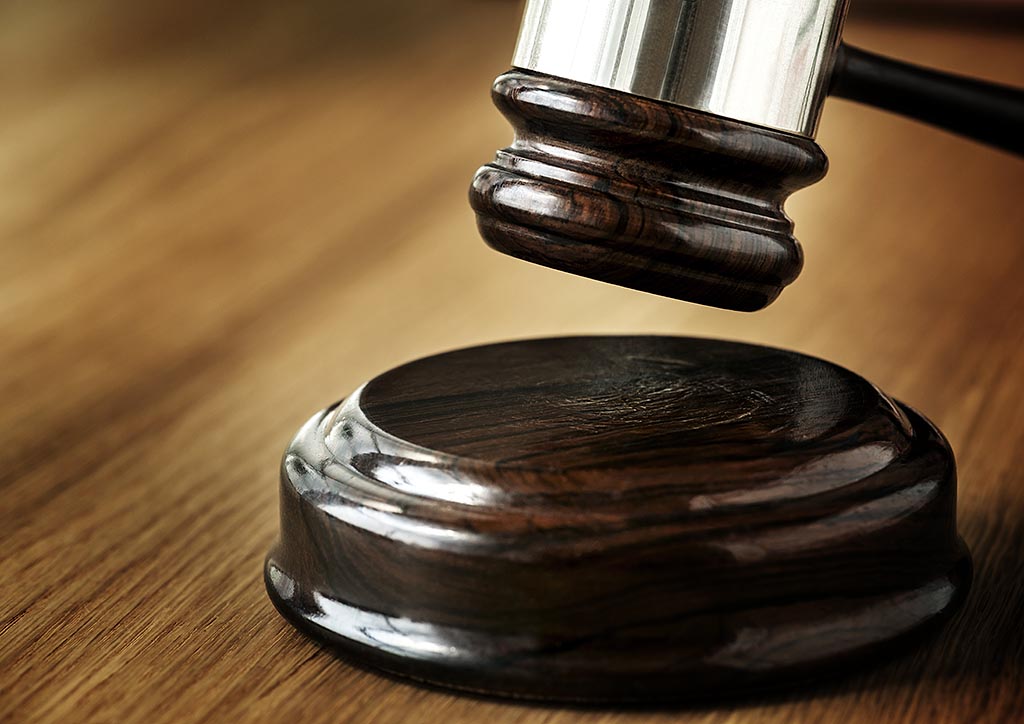By: Sara Kovač / Nova24tv.si
In the compensation lawsuit of SDS president Janez Janša, it was about the key people in the Patria case who led the process on the basis of the undetermined place, time, and communication method of committing the crime, and their legal assessment was later annulled by the Constitutional Court. Janša, who had to go to prison unjustly, demanded compensation from those responsible – but the Kranj judge rejected the compensation claim without providing a single piece of evidence. After the finality of the judge’s partial written decision, the hearing of the lawsuit against the state should continue.
“One this is a trial, but political reckoning is something completely different. It was a political showdown. If I quote the former constitutional judge Krivic, it is clear at first glance that what we were tried for in the Patria case is not a criminal act. Those who participated in this knew that they were not carrying out a trial, but a political execution, and that there would be no responsibility or that they would not pay damages,” Janez Janša told the media – in fact, at the beginning of January, we announced that at the Kranj District Court, the hearing of the compensation lawsuit has finally begun, with which the president of the SDS and former prime minister is demanding 900,000€ in compensation from the former prosecutor and the judges who tried the Patria case.
At the beginning of January, the judge announced that the court would first decide on the possible compensation liability of the prosecutor and the judges, and that the decision would be issued in writing. Janša announced a partial verdict on Twitter this afternoon – district judge Tanja Bizjak ruled that the plaintiff’s claim is rejected, namely in the part that reads: “Defendants Branka Zobec Hrastar, Barbara Klanjšek, Milan Štrukelj, Vesna Žalik, and Branko Masleša are jointly and severally obliged to pay the plaintiff the amount of 901,119.96 euros with statutory default interest from September 29th, 2017”.
“Without providing a single piece of evidence, the Kranj judge rejected the claim for compensation against Masleša and the other actors of the wrongful justice in the Patria case, saying that the damage should be paid for by innocent taxpayers,” commented Janša. Let us remind you that Janša accused those concerned of illegal work in the Patria process, which ultimately expired. As he said when he arrived at the court in early January, these specific individuals changed the course of political history in Slovenia by abusing the instruments of the rule of law. He emphasised that the Patria case was not a trial, but a political showdown and political execution. Janša’s lawyer, Franci Matoz, judged that sufficient evidence was offered in the proceedings to show that the sued individuals acted arbitrarily with the intention of causing damage and thus fulfilled all the elements of liability for damages.
It was an abuse of law, as the judge abused his position with the intention of causing damage to the plaintiff
It seems that the judge clearly considered that the lawsuit is inconclusive, that the claim has no basis in the asserted facts. In doing so, however, she overlooked that this was not a case of judicial error – in fact, in this case, the damages immunity of judges could really apply. In the case in question, however, it was an abuse of law, as the judge abused his position with the intention of causing damage to the plaintiff. Therefore, it is not a question of damage in the exercise of the judicial profession or in connection with it, but of intentionally caused damage, where practicing the judicial profession was not the goal, but the judicial service was only a means of causing damage – the judicial service was therefore abused. When it comes to abuse of position, in this case the office of a judge, with the aim of causing harm to another (which is also a criminal act), it is difficult to talk about the tort-legal immunity of judges. Namely, this immunity refers only to cases of judicial service, i.e., to cases where the goal of the judge’s conduct is a trial, but not abuse of judicial service. In the case in question, if we emphasise once again, performing the duties of a judge was not the goal, but only a means of causing damage. And if this is a criminal act – which it certainly is, then we cannot say that the victim does not have a claim for compensation against the intentional causer of the damage.
Therefore, at the hearing on January 8th, the judge rejected the evidence proposals after questioning some witnesses, including former constitutional judges Miroslav Mozetič and Mitja Deisinger. And Matoz emphasised that the non-implementation of the proposed evidence is an absolute violation of the regularity of the procedure. The judge also rejected the claimant’s proposal to suspend the proceedings in order to initiate proceedings before the Constitutional Court regarding the unconstitutional legal void regarding the direct responsibility of the judge and the prosecutor. Namely, the judge considered that it was not an unconstitutional legal void. Following the finality of her partial written decision, consideration of the lawsuit against the state should continue. As Miha Kunič explained, the state may have to pay compensation because the defendant was unjustly serving a sentence. “Proceedings will continue against the state regarding compensation because it is completely legal, but the question is what the amount of compensation will be. Here, the state and the plaintiff did not agree,” explained Emil Zakonjšek, who represented Masleša, Žalik, and Štrukelj.
